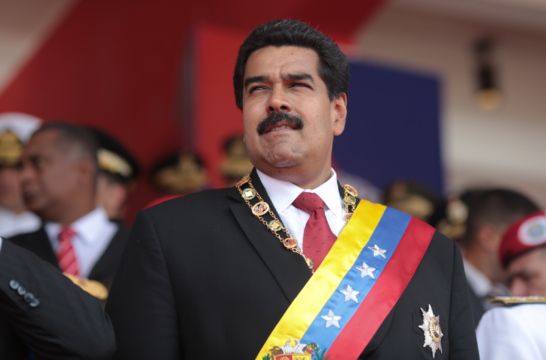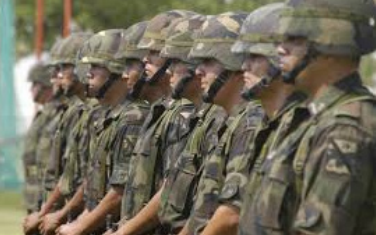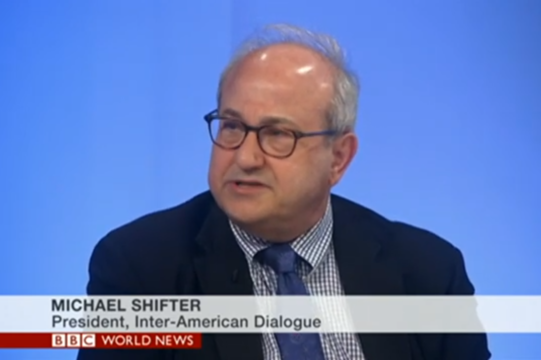
Venezuela on the Brink: How the State Wrecked the Oil Sector
How the State Wrecked the Oil Sector—and How to Save It
A Daily Publication of The Dialogue
Q: Brazil's Foreign Affairs ministry said March 1 that the U.S. Air Force's cancellation of a $355 million contract for defense aircraft manufactured by Embraer was a surprise and does not help bilateral military relations between the two countries. The cancellation, which Air Force officials said was due to faulty documentation surrounding the contract, followed reports that Brazil is likely to choose France's Dassault instead of U.S.-based Boeing for a multi-billion-dollar contract for military aircraft. Have these developments affected military and business relations between the two countries? Will Brazilian President Dilma Rousseff's visit to Washington next month help improve bilateral relations? What will be the most important agenda items during her visit?
A: Craig Kelly, member of the Advisor board and vice president of the Cohen Group in Washington: "Some press reports have suggested that the U.S. Air Force announcement could not have come at a worse time-with Deputy Secretary of State Bill Burns traveling in Brazil and President Rousseff about to visit Washington. Actually, those visits underscore the wide range of important issues that the United States and Brazil deal with cooperatively and pragmatically every day. Whether it's the global economy, trade, investment, agriculture, educational exchange, cooperation on science and technology, biofuels, combined efforts to combat racial discrimination, cultural programs or sports diplomacy-our countries enjoy an exhaustive record of coordination. That list includes important military-to-military ties, in the context of the U.S.-Brazil Defense Cooperation Agreement, which covers research and development, defense technology, peacekeeping operations, military education and training and defense-related commercial matters. As for the U.S. Air Force announcement, Brazil has made clear that it was surprised and concerned. Since that time, the Air Force has underscored that the decision reflected an internal issue that is under investigation, and U.S. officials have signaled continued interest in the Brazilian bid. Moreover, Pentagon and State Department officials emphasized publicly and privately that this issue is completely separate from the Brazilian fighter competition. When President Rousseff visits Washington next month, we should expect an agenda rich in variety and depth, as befits a conversation between two of the world's largest economies. In a relationship this big and complex, there will always be differences-but one of the reasons for having these visits is to discuss those issues privately, in the context of the far more numerous issues that bring the two nations together."
A: Rubens Barbosa, former ambassador of Brazil to the United States: "The U.S. Air Force's chief of staff, Gen. Norton Schwartz, said the cancellation was a shame, disappointing and could affect the institution's reputation. This is the second time that a contract awarded to Embraer in a U.S. public tender has been canceled due to political reasons. The timing of the announcement shows lack of coordination among different agencies. U.S. Deputy Secretary of State William Burns was in Brazil to discuss Dilma's visit to the United States, a Brazilian delegation was in Washington for a discussion with U.S. authorities in an effort to strengthen the bilateral relationship in the area of military cooperation and there is a pending Brazilian decision on the tender for the fighters (Boeing is well-placed). The cancellation is another example of the distance between rhetoric (interest in improving the defense relationship) and practice (cancellation of tenders, a U.S. veto of Embraer's deal to sell military aircraft to Venezuela in 2006 and barriers to transfer of technology). The reaction of the Brazilian government was moderate and cautious ('doesn't help the deepening of defense cooperation'), as it should have been. No doors have been closed. The April presidential visit will foster the bilateral relationship leaving behind ideological prejudices of the Lula era. The most important items on the agenda seem to be energy (oil and renewable) and innovation cooperation. How the two countries' private sectors may take advantage of political support from Washington and Brasília in these two areas is an open question."
A: Peter Hakim, member of the Advisor board and president emeritus of the Inter-American Dialogue: "The U.S. Air Force's sudden and still largely unexplained cancellation of the Embraer contract on the eve of Dilma's first visit to the White House illustrates why Brazil remains distrustful of Washington and reluctant to pursue a closer relationship with the United States. No two countries talk more about the need for and potential benefits of a 'strategic partnership' and do less to establish the basis for one. Frequently, the United States treats Brazil as if it did not quite earn or measure up to the status it has achieved in world affairs. To be sure, Washington sees Brazil as the 'primus inter pares' when it comes to Latin America, but does not assign it anywhere near the global importance it does to China and India. It often seems that the United States considers Brazil an interloper when it comes to international politics. And Brazil often responds in kind. It seems intent on demonstrating its growing stature and influence by consistently flaunting its independence of the United States and, on many issues, showing off its opposition-even where bedrock U.S. interests are at stake. The growing mistrust between the two countries should not be surprising. Nor should the occasional tensions. Dilma's visit to Washington is unlikely to alter much, any more than Obama's visit to Brazil did a year ago. Both nations would benefit from a change in approach."
A: David Fleischer, emeritus professor at the University of Brasília and editor of Brazil Focus: "The abrupt cancellation of the U.S. Air Force's $355 million contract with Embraer and Sierra Nevada to supply 20 Super Tucano light-attack aircraft only reinforced suspicions by Brazilians that in this area of military contracts the United States 'can not be trusted.' These planes were to be constructed at Embraer's facilities in Florida and would have generated 1,200 U.S. jobs. Unfortunately, this procurement became the focus of a vociferous lobby launched by Kansas-based Hawker Beechcraft, which lost the contract to the Brazilian firm and filed a suit in federal court against the Air Force. These developments forced the Air Force to cancel the contract as a means of quashing this lawsuit and mobilizing a new procurement effort. Recently, high level U.S. government representatives (William Burns, Rose Gottemoeller and Thomas Countryman) took great pains to explain to their Brazilian counterparts that Embraer is still a strong contender in the new procurement (which would be finalized in 2013, after the U.S. presidential election). Many in Brazil feel that the Air Force's action has weakened the chances of the Boeing F-18 Super Hornet being selected by Brazil in the multi-billion dollar procurement for 36 fighter planes (F-X2), and has strengthened the chances of the Rafale from France's Dassault of being selected. Boeing became so concerned that it sent a group of high-level executives to Brazil to reinforce its F-18 proposal. Brazil suspects that if the Boeing plane were selected, the United States would embargo (partially or totally) the transfer of technology for Brazil to manufacture this plane. Non-military business relations should not be affected by this episode. Surely, this controversy and Brazil's F-X2 procurement will be on the agenda during the Rousseff-Obama encounter on April 9. Other items, such as Iran's nuclear program, should also be included."
How the State Wrecked the Oil Sector—and How to Save It
Is López Obrador’s plan to form a National Guard to combat organized crime a good idea?
Michael Shifter spoke with Laura Trevelyan on BBC World News to analyze the future of Juan Guaidó and the Venezuelan military as as the pressure coming from the Trump administration.

 Video
Video